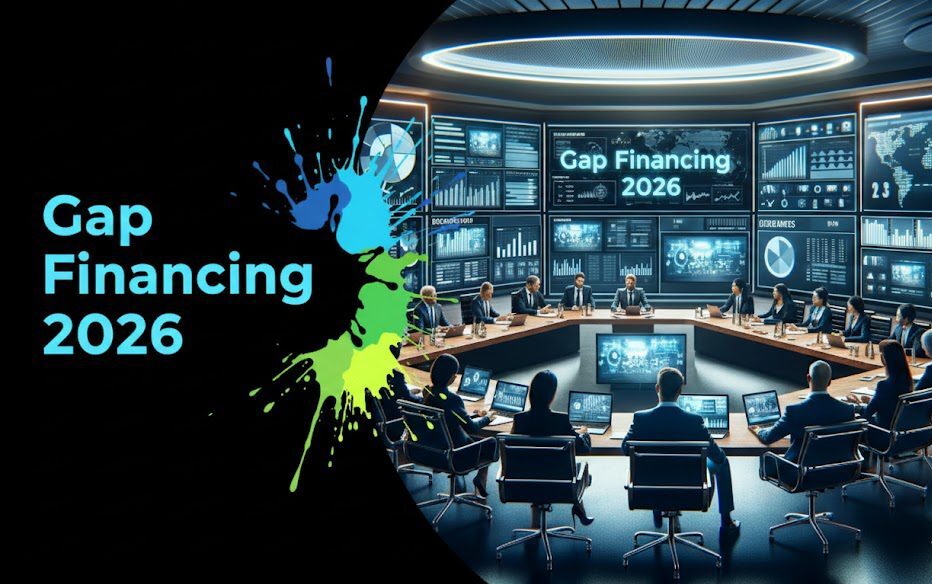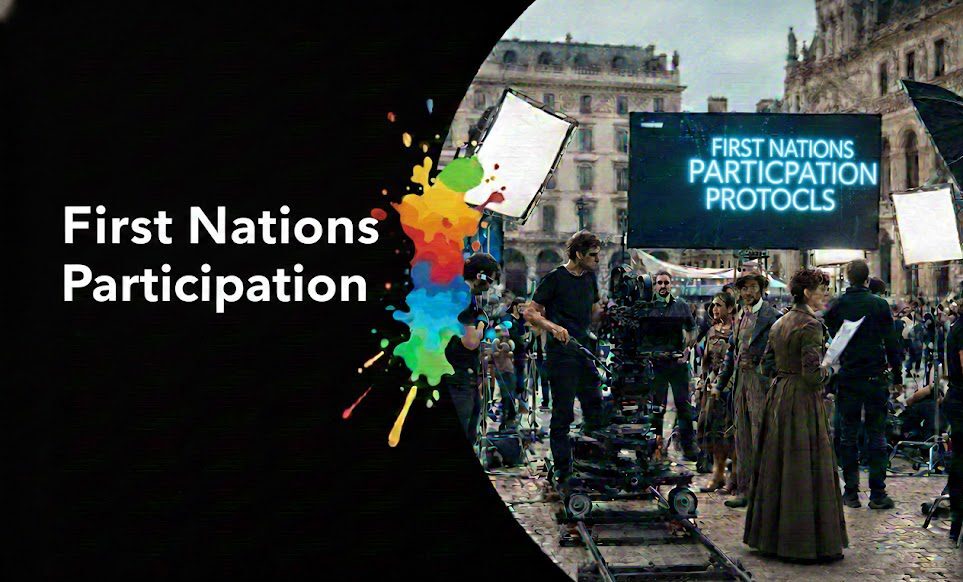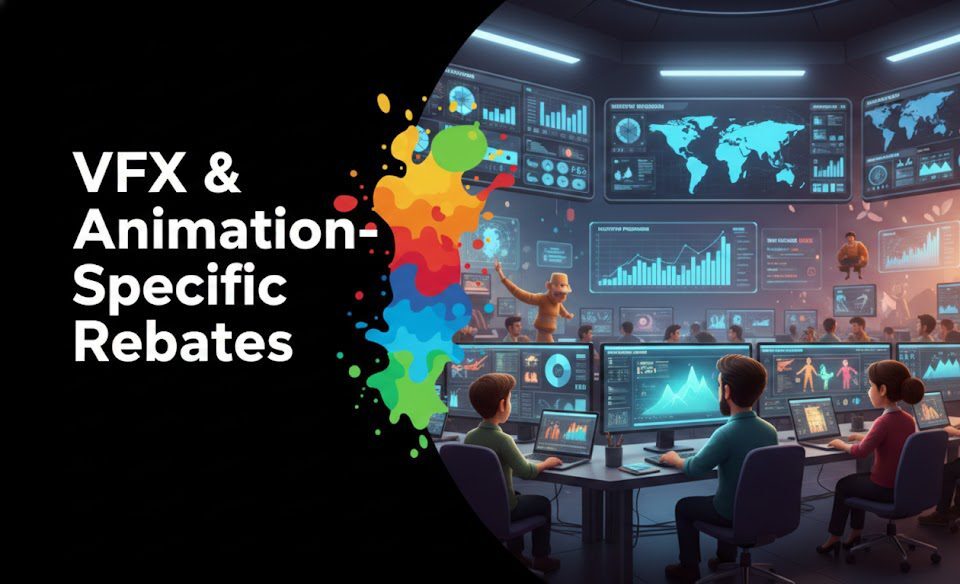Mastering post-production workflows is the strategic orchestration of cloud-native infrastructure, AI-assisted creative tools, and real-time project tracking to accelerate delivery timelines while maintaining cinematic quality.
This involves transitioning from localized silos to decentralized, collaborative environments that leverage supply chain intelligence for lead qualification and resource planning.
According to Vitrina AI intelligence, the global post-production services market is set to expand significantly through 2033, driven by a 40% increase in demand for sophisticated VFX and immersive local content.
In this guide, you will learn how to optimize pipeline efficiency, integrate ethical AI solutions, and leverage global data to secure high-value projects in an increasingly fragmented market.
While legacy resources often focus on technical software tutorials, they frequently overlook the operational friction points—such as unvetted partner networks and data-deficit silos—that currently hinder global collaboration for mid-tier studios.
This comprehensive analysis fills those gaps by providing a roadmap for technical leads to transform their facilities into agile, data-powered hubs capable of serving major streamers and independent producers alike.
Your AI Assistant, Agent, and Analyst for the Business of Entertainment
VIQI AI helps you plan content acquisitions, raise production financing, and find and connect with the right partners worldwide.
- Find active co-producers and financiers for scripted projects
- Find equity and gap financing companies in North America
- Find top film financiers in Europe
- Find production houses that can co-produce or finance unscripted series
- I am looking for production partners for a YA drama set in Brazil
- I am looking for producers with proven track record in mid-budget features
- I am looking for Turkish distributors with successful international sales
- I am looking for OTT platforms actively acquiring finished series for the LATAM region
- I am seeking localization companies offer subtitling services in multiple Asian languages
- I am seeking partners in animation production for children's content
- I am seeking USA based post-production companies with sound facilities
- I am seeking VFX partners to composite background images and AI generated content
- Show me recent drama projects available for pre-buy
- Show me Japanese Anime Distributors
- Show me true-crime buyers from Asia
- Show me documentary pre-buyers
- List the top commissioners at the BBC
- List the post-production and VFX decision-makers at Netflix
- List the development leaders at Sony Pictures
- List the scripted programming heads at HBO
- Who is backing animation projects in Europe right now
- Who is Netflix’s top production partners for Sports Docs
- Who is Commissioning factual content in the NORDICS
- Who is acquiring unscripted formats for the North American market
Producers Seeking Financing & Partnerships?
Book Your Free Concierge Outreach Consultation
(To know more about Vitrina Concierge Outreach Solutions click here)
Table of Contents
- 01
The New Definition of Post-Production Workflows - 02
Transitioning to Cloud-Native Pipelines - 03
Integrating Ethical AI: From Dubbing to ADR - 04
Leveraging Supply Chain Intel for Lead Discovery - 05
Real-Time Project Tracking: The Efficiency Advantage - 06
Building Global Strategic Alliances - 07
Case Study: Achieving Scale Through Intelligence - 08
Key Takeaways for Technical Teams - 09
Workflow FAQ - 10
Moving Forward
Key Takeaways for VFX & Post-Production Leads
-
Cloud-Native Centralization: Studios adopting cloud hubs achieve 24/7 global collaboration, eliminating version control nightmares and enabling secure remote access to 8K assets.
-
AI Efficiency Gains: Leveraging ethical AI for repetitive tasks like rotoscoping and dialogue sync increases win rates by 40% through faster project turnaround.
-
Pipeline Visibility Advantage: Monitoring real-time project trackers like Vitrina allows service providers to engage productions during active bidding windows, often months before trade announcements.
What is a Modern Post-Production Workflow in 2026?
The definition of a post-production workflow has evolved from a linear sequence of events into a dynamic, multi-threaded ecosystem. In 2026, it encompasses everything from “in-camera” visual effects in virtual production to the final mastering for global FAST channels and streaming platforms. This holistic approach ensures that storytelling remains the priority while technical infrastructure handles the massive data throughput.
For Technical Service providers, this shift means moving beyond being a “vendor” to becoming a “strategic partner.” This involves managing petabytes of content in the cloud and utilizing automated quality control (QC) tools to meet the high-fidelity standards of modern 8K cinematic delivery. Success is now measured by how seamlessly a studio can integrate into a global media supply chain.
Identify episodic series entering post-production near you:
How Do Cloud-Native Pipelines Accelerate Post-Production?
Cloud-native pipelines have shifted from being a pandemic-era necessity to the primary hub of creative work. By leveraging services like Azure, AWS, and specialized Media Asset Management (MAM) platforms, studios can now enable an editor in Singapore to cut a sequence while a colorist in London performs grading in real-time. This eliminates the “nightmare of version control” that once plagued decentralized teams.
Beyond mere storage, these infrastructures support “zero-trust” security models and automated ingestion workflows. As highlighted by MovieLabs’ 2030 Vision, the integration of real-time iteration powered by the cloud allows directors to give feedback instantly, reducing the revision cycle from days to hours. This efficiency is critical for boutique post-houses looking to compete with larger studios.
Industry Expert Perspective: The CEO Masterclass: Culture and Growth at Outpost VFX
Duncan McWilliam, CEO of Outpost VFX, discusses how industry transformation and technology are reshaping the supply chain for global VFX houses.
This discussion explores the journey of Outpost VFX and the massive changes impacting the entertainment supply chain, including AI, industry transformation, and macroeconomic shifts.
How to Integrate Ethical AI into Professional Workflows?
Artificial Intelligence is no longer just a buzzword in post-production; it is a core productivity assistant. Ethical AI tools are now used for high-stakes tasks like “Visual ADR,” where AI re-articulates mouth movements to match new dialogue without destructive reshoots. This technology enables censorship editing and story tightening at a fraction of traditional costs.
For localization, AI-powered dubbing and emotional voice stacking allow studios to reach global audiences while respecting performer likeness rights. By using “authorized data” models—much like the Disney-OpenAI partnership—post-production houses can ensure legal compliance and brand safety, transforming repetitive manual labor into a high-level creative oversight process.
Target active post-production and VFX companies for partnerships:
Why Do Technical Service Providers Rely on Supply Chain Intel?
Legacy methods of finding work—such as trade show networking and cold outreach—are structurally incapable of keeping pace with modern content volume. Supply chain intelligence platforms like Vitrina provide a “digital lighthouse,” illuminating unreleased projects long before they reach the public eye. For a VFX studio, this “early-warning signal” is the difference between pitching a project and hearing about it in Variety.
By tracking over 1.6 million titles and 140,000+ companies, Vitrina reveals the critical relationships between financiers and producers. This allows technical leads to qualify leads based on real-time data: budget ranges, genre preferences, and historical vendor choices. It transforms business development from a manual art into a data-driven science.
Success Story: How Dinamita Post Leverages Global Intelligence
Dinamita Post, a leading Mexican post-production house, faced the challenge of breaking into the premium Hollywood market while competing with global giants. Despite their Emmy-winning quality, they operated in a geographical silo, lacking direct lines to major US streamers. By implementing a data-driven outreach strategy using Vitrina’s Company & People Intelligence, the team identified 15 high-probability production partners with active projects in the Latin American region.
Within six months, the studio utilized VIQI AI to map historical collaborations of target executives at Netflix and HBO. This precision outreach resulted in a 65% response rate—compared to the industry average of 12%. By week 12, they had secured post-production contracts for two major episodic series, compressing their typical 18-month business development cycle into one quarter.
“Transitioning from localized networking to a data-powered supply chain strategy allowed us to compete on a global stage. We no longer wait for leads; we identify active productions during the financing stage and pitch before the competition even knows the project exists.”
Frequently Asked Questions
Essential answers for technical teams mastering the modern post-production pipeline.
What is the best post-production workflow for 2026?
How does AI help in post-production?
Why is cloud-based editing better?
What are the biggest challenges in post-production collaboration?
Moving Forward
The shift from legacy localized workflows to cloud-native, AI-enhanced ecosystems is no longer optional for technical service providers. This transformation addresses the critical gaps in global collaboration and operational efficiency, allowing studios to master post-production by replacing manual labor with data-driven strategy.
Whether you are a VFX Lead looking to optimize pipeline throughput, or a Strategy Officer trying to identify high-value acquisition targets, the principle remains: real-time supply chain intelligence is the engine of growth.
Outlook: Over the next 12-18 months, the integration of generative AI world models will further democratize virtual production, allowing anyone to generate immersive 3D environments from simple text prompts.
About the Author
This guide was developed by the Vitrina AI Content Architecture team, specializing in entertainment supply chain intelligence. Our analysts track 1.6 million titles and 30 million relationships to help industry professionals navigate the borderless media market. Connect with us on Vitrina.



































